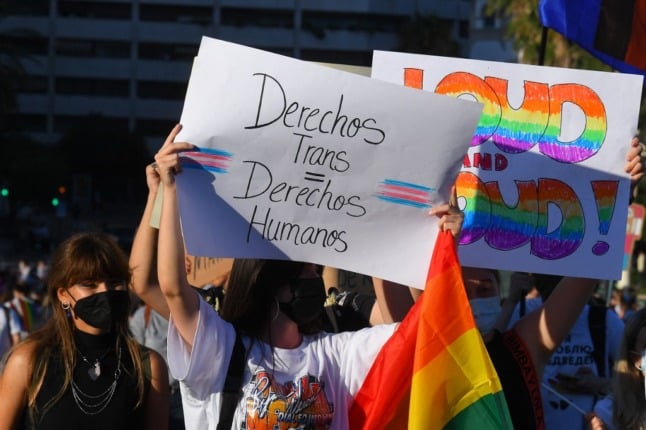She already holds the title of Miss Cadiz and will be taking a big step for the transgender community on Sunday in Málaga as she hopes to become the first trans woman to win Miss World Spain.
Ponce said she hopes that her participation will help bring more visibility to others like her.
“Society is not brought up to be educated about diversity,” Ponce told news agency EFE. “This is what made me go public. I want to say, here I am and I am not weird, I only have a different history. A woman for whom life came about in another way, but I am a woman.”
Ponce is representing Cádiz, though she was born in Seville, but she said she is happy to represent the city where she spent many summers.
If she wins, she would go on to participate in the Miss World competition in China this December.
She has also been working with the Daniela Foundation to raise awareness about transsexual and transgender individuals.
(function(d, s, id) { var js, fjs = d.getElementsByTagName(s)[0]; if (d.getElementById(id)) return; js = d.createElement(s); js.id = id; js.src = “//connect.facebook.net/en_US/sdk.js#xfbml=1&version=v2.3”; fjs.parentNode.insertBefore(js, fjs);}(document, ‘script’, ‘facebook-jssdk’));
Posted by Fundacion Daniela on Wednesday, October 21, 2015
The first beauty pageant contestant to make headlines for breaking boundaries was Jenna Talackova, who in 2012 won a legal battle to be able to compete in Miss Universe Canada. Talackova didn't take away the national prize, but was named Miss Congeniality.
The 23-year-old Ponce says she knew her whole life that she was a girl, born in a boy's body, but didn't know how to explain it.
She currently works as a model as well as at her parents' restaurant and said she wants to go to university and study English.
“The basis of everything has been that my family supports me,” She told EFE. “When I was little, I would go with my brother shopping and my parents told me that I could get a toy. I remember going to the dolls and taking a Barbie and saying 'this is what I want'. They never told me 'no, boys play with balls and cars and girls play with dolls'.
“My father took the Barbie and put together the doll with me. So amid the bad times, I've been very lucky.”



 Please whitelist us to continue reading.
Please whitelist us to continue reading.
Member comments